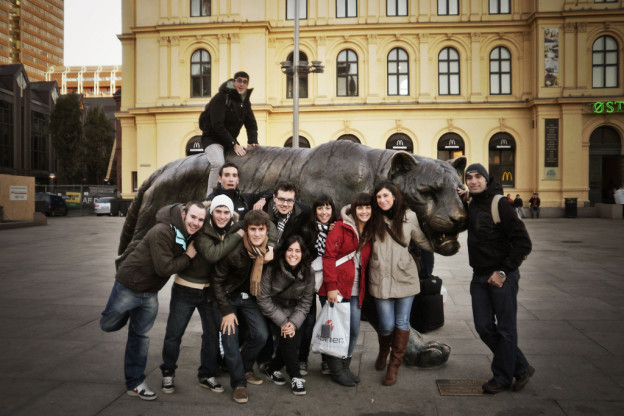A few weeks ago, I finished David Graeber and David Wengrow’s The Dawn of Everything. It is not science fiction, nor it is economics. And yet, I propose it has to do with both. The book begins by stating inequality has risen to the top of the agenda for public debate. Scholars, politicians, business leaders are calling attention to it. Where, they ask, does inequality come from? How can we reduce it to tolerable levels?
The authors then proceed to question these questions. A lot of people believe there is this thing called “inequality”, and it comes from somewhere – it was not always there. This belief is cultural, and we can investigate it. So, Graeber and Wengrow’s research question is not “where does inequality come from?”. It is “where does the question about where inequality comes from come from?”
It is a move typical of anthropology. In fact, Graeber does the exact same thing in the opening chapter of Debt: The First 5,000 Years . He finds himself at a party, and the conversation falls on the 2011 Greek debt crisis. A guest remarks that yes, the Greek people are suffering, but “debts must be paid”! And Graeber wonders: why do people think that? where does this belief come from? And off he goes.
I am a big fan of Debt. I read it twice, back to back, and went back to it several times to re-read inspiring digressions from the main theme. While worth reading, Dawn is not as good as Debt, in my humble opinion. Its arguments are not as thorough, and it tends to treat absence of evidence as evidence of absence. But it does make an important contribution: it replaces the question on the origin of inequality with a better question. That better question is: how did we get stuck?
It works like this. The question about the origins of inequality implies a linear social process. Back in humanity’s hunting-gathering days, the story goes, all men and women were equals. But then, about 10,000 years ago, humanity shifted to agriculture. This created regimes of private property, cities, complex societies, wars for resources and élites to appropriate their surplus. So, we got inequality, and we are stuck with it, because it is the price to pay to have a complex society.
The problem with this story is that is not borne out by what we know. Graeber and Wengrow’s data consist of archeological findings and ethnographies of indigenous societies encountered by European settlers during colonial times. And these, the authors tell us, agree: there is no linear process from equality to inequality. Ancient societies appear to have experimented with many models. Foragers experimented with farming, then let it go. Large urban settlements arose in the absence of agriculture. Farming societies remained egalitarian for centuries. Cities dominated by élites abandoned the construction of pyramids and temples to embark on large-scale social housing projects. There are even documented societies that lived in towns, and farmed, during the winter, and in small bands of hunters gatherers during the summer.
The authors insist that all this happened because the people that made up those societies wanted it to. They were politically sophisticated and reflective. They knew that they could shape their institutions in ways that preserved their freedom and well-being. A part of getting this right was making sure people did not have too much power over one another: in our modern terms, that people would equals.
Ancient societies were not stuck. Its members were free to roam, and were subject to very little cohercion. But entire societies were also free in another sense, that of shaping arrangements that made people’s lives better. Instead, we moderns are very stuck.
And that brings me to the Sci-Fi Economics Lab. When my partners and I dreamed up the Lab, in 2019, we had no idea what Graeber and Wengrow were up to. Yet, like them, we felt stuck. We felt crippled by our inability to imagine living under any system other than late-stage capitalism. To heal, we turned to the imagined futures of science fiction, and to economics as an angle of attack. It was a good choice: we have come some way to freeing our imagination. Today, sci-fi stories set in the world of Witness give us a glimpse of everyday life in post-capitalist systems. Graeber and Wengrow appear to have taken the opposite route, into humanity’s distant past. But we share the same curiosity, and the same conditional optimisms, and I know them for kindred spirits.


